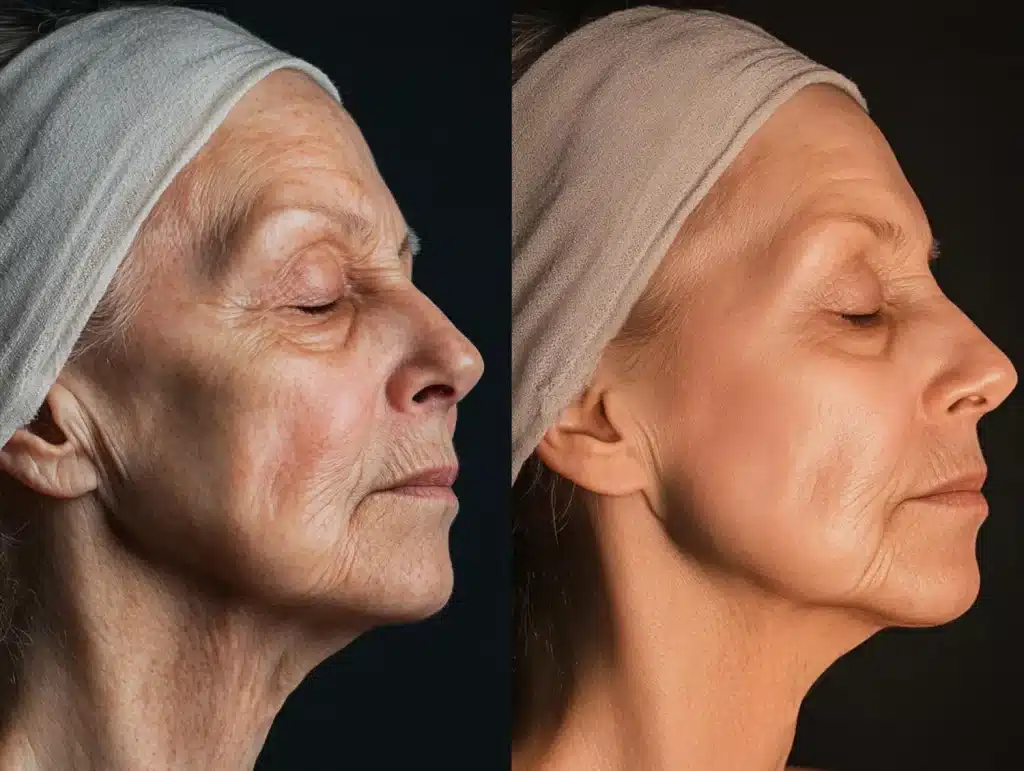Advances in technology have provided cosmetic and surgical professionals with more options for administering safe and effective solutions to their patients. Soft-tissue dermal fillers are an attractive alternative to Botox for managing facial wrinkles and folds, particularly in the lower region of the face where botulinum toxin A utilization is limited.
Most dermal fillers approved by the FDA and other regulatory agents are temporary. Their ingredients are easily broken down by the body, and their effects generally last between 3 months and 1 year. Only 1 non-resorbable product is approved by the FDA, and its results can last for more than 2 years.
How to be safe with dermal fillers?
There is no guarantee that patients will not experience mild or serious side effects, but the risk of these adverse reactions can be minimized by following proper injection technique, selecting an appropriate product or brand for each patient’s skin concern, and using authentic products. Being a minimally invasive procedure, most negative results from dermal filler use are not caused by the filler itself, but by injection errors and the use of inauthentic products. Biocompatible and biodegradable fillers have a good safety profile because they are completely absorbed by the body over time.
Do your research
Patients and the medical professionals they visit must be certain and informed of all relevant information designated to each specific dermal filler in use. Reading the packaging insert and product labels are a great practice to perform thoroughly. Ensure to verify the authenticity of any products before using them. Consult recognized health organizations in your region or country for resources to learn more about any procedures fitting your interest or goals. It has become commonplace for health organizations through the world to offer information through their websites. For instance, if you are located within the USA, you can visit the FDA website for the benefit of an extended list of approved soft-tissue cosmetic fillers.
Ask questions
Just like any other medical procedure or injectable treatment, dermal filler use has its own associated risks. Side effects are common even with popular brands. Patients may experience post-injection reactions, such as bruising, itching, redness, swelling, and localized pain. Using unapproved or inappropriate products can result to severe complications or even death. Use your research to make a list of questions that you can ask your medical practitioner.
Go to a licensed doctor
It is important for patients to choose a licensed medical professional with knowledge of anatomy, pathophysiology of the aging process, and injection techniques. Patients should ensure their health-care provider has as verifiable certification and experience in using soft-tissue fillers. Although dermal filler injections are a non-surgical treatment, it should be performed in a medical setting using sterile instruments.
- Health-care practitioners should purchase dermal fillers only from the manufacturer or authorized distributers. They should never buy dermal fillers from non-medical settings (e.g. hotels, resorts, private homes).
- Health-care practitioners must be careful when buying dermal fillers online. They should only buy from sites that require their medical license number.
- Health-care practitioners should never administer unapproved treatments, such as silicone, for contouring the buttocks or the breast area.
Cheaper doesn’t mean better
If a dermal filler injectable is being offered for a fraction of the regular rate, chances are the skill of the doctor is questionable or the product is counterfeit. It is always a good idea to ask around for your doctor’s reputation online or social media.
Dermal fillers are generally safe when coupled with a skilled medical practitioner
Which means severe complications are uncommon but possible. It is the responsibility of health-care providers to ensure that the products they are using are safe, effective, and appropriate for the indication. Health-care providers must learn the ins and outs of dermal filler injection to avoid putting their patients’ health at risk.
Disclaimer: The contents of this article are for informational purposes only and must not be considered as medical advice. We, MedicalSparx.com do not agree, endorse or approve opinions expressed by authors of our medical community. Articles are not reviewed for accuracy by MedicalSparx.com. You should always consult your doctor when seeking medical advise.




















